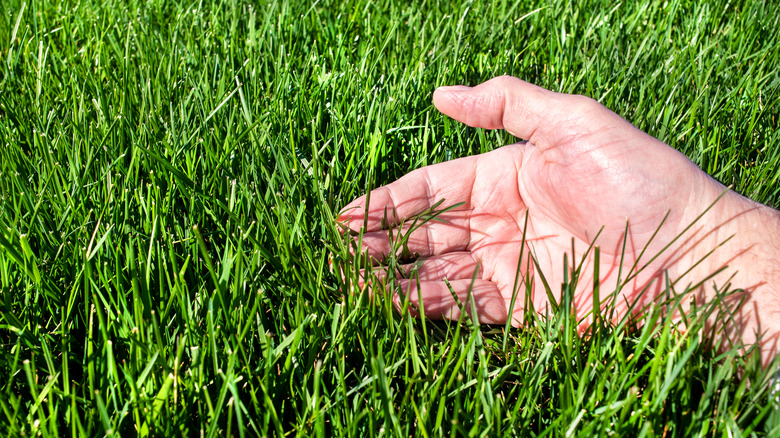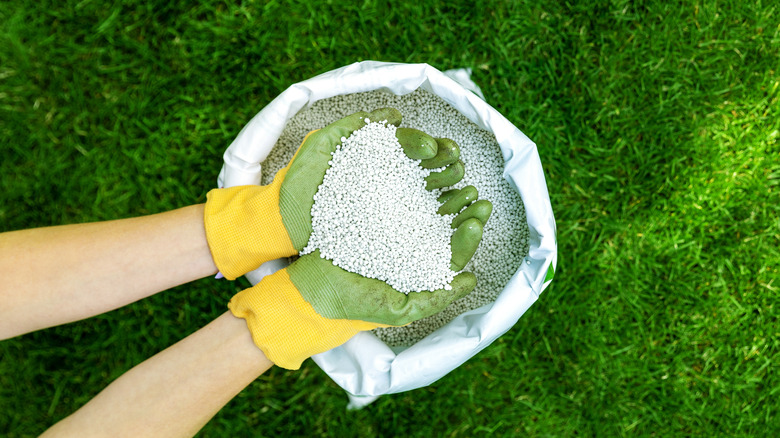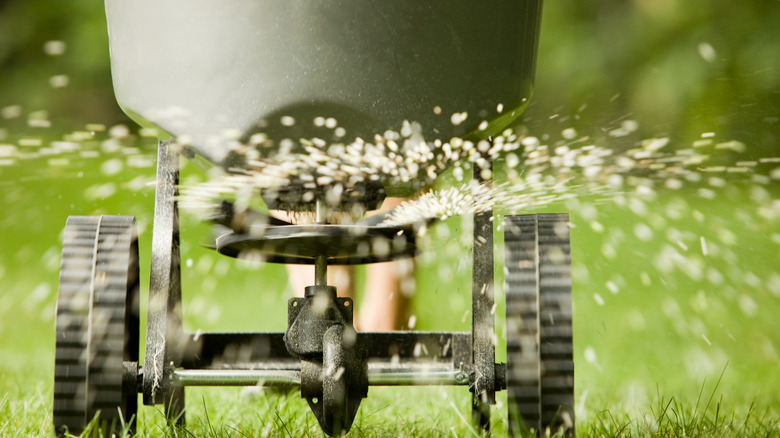Organic Vs. Synthetic Fertilizer: Which Is Best For A Healthy Lawn? Our Lawncare Expert Weighs In
You might be struggling to decide whether to select an organic or synthetic fertilizer for your lawn. Both have their benefits and downsides. Organic fertilizers are nutrient-dense organic materials such as manure or compost. They often contain a very wide range of nutrients. Synthetic fertilizers are manufactured and can be purchased from retail stores that sell lawncare supplies, which makes them a more convenient option for many homeowners. These fertilizers are typically formulated to include nutrients like phosphorus, potassium, nitrogen, or sulfur. So, which of these options is best to help keep your lawn green and healthy? Either can be effective, but synthetic fertilizers are easiest to use, according to LawnStarter CEO Ryan Farley.
While speaking exclusively to House Digest, Farley recommended using synthetic fertilizers. This is great news for beginners who may not yet have enough knowledge on how to work with organic fertilizers. Luckily, it's pretty easy to snag synthetic fertilizer from your local home improvement store or any retailer that sells lawncare products.
Why is synthetic fertilizer the better choice?
Synthetic fertilizer has a long list of benefits, but why exactly does Ryan Farley recommend it? "When it comes to fertilizer, the important thing is getting the balance of nutrients right," the LawnStarter CEO shared while speaking exclusively to House Digest. "This is possible with organic fertilizer, especially for experienced experts, but it's easier and more precise with synthetic fertilizers, especially if you take the time to test your soil first and determine what it needs."
As Farley explained, synthetic fertilizers are great because they can provide your lawn with the right balance of nutrients based on its unique needs. After identifying what your lawn requires to maintain its health, you can purchase a synthetic fertilizer that includes the specific nutrients it's lacking. This is a great way to grow a healthy lawn. For example, if your lawn requires more nitrogen, you can select a synthetic ammonium sulfate-based fertilizer, which provides plant-available nitrogen.
The downsides of synthetic fertilizer
Although Ryan Farley recommends using synthetic fertilizer to target exactly what your lawn needs, he explained that it does come with downsides. While speaking exclusively to House Digest, he shared, "Synthetic fertilizer is definitely more expensive; you can generally use yard waste and compost as an effective organic fertilizer if you know what you're doing, and that stuff is free as long as you have the time and knowledge to prepare it."
Along with the higher costs, synthetic fertilizer is also not the best choice if you're aiming to make your lawncare routine as environmentally friendly as possible. When your grass or plants don't use all of the nitrogen found in many synthetic fertilizers, the excess nitrogen can lead to water and air pollution. This is something to consider before selecting synthetic fertilizer over organic fertilizer. For those with environmental concerns, you may want to stick with natural fertilizers for your lawn.


